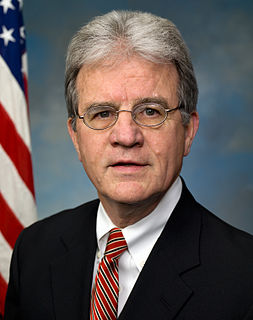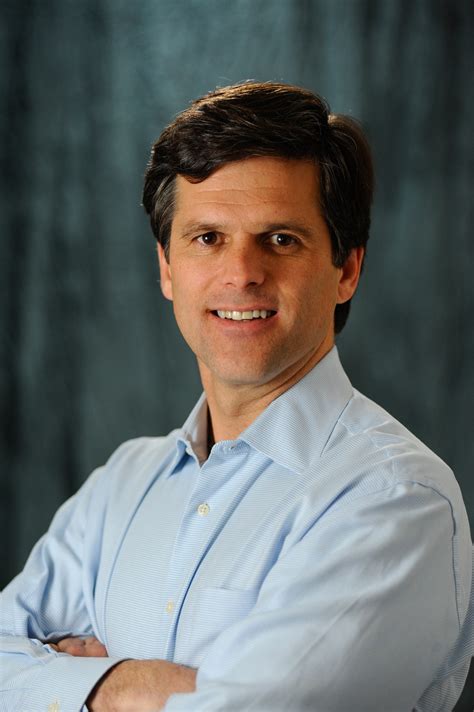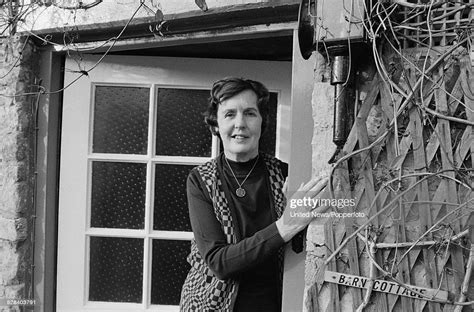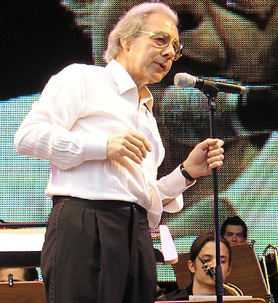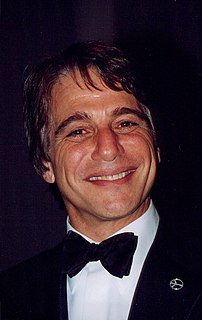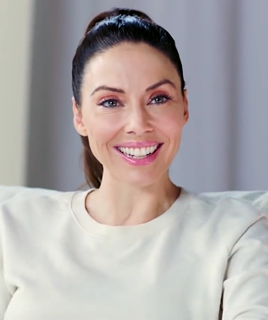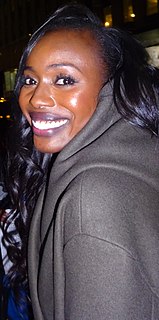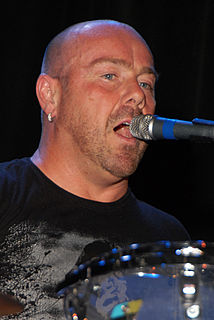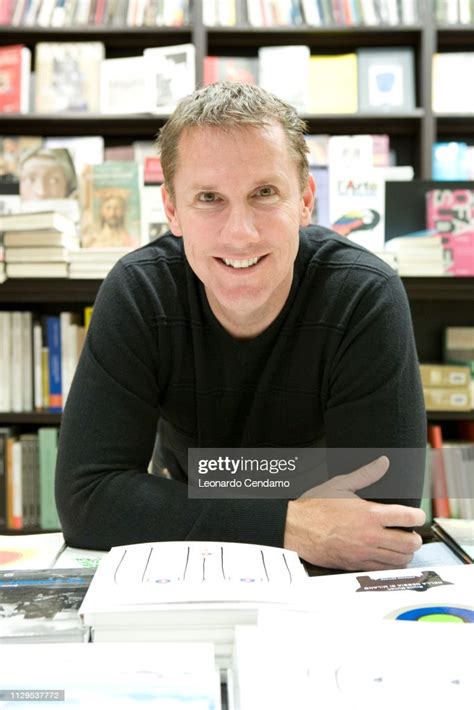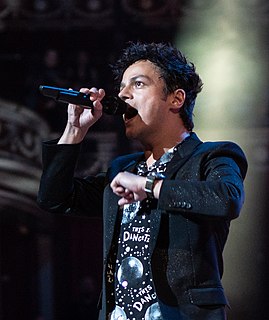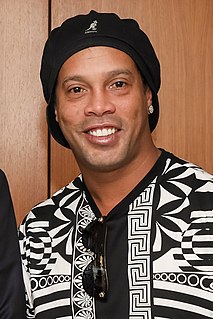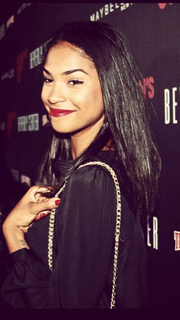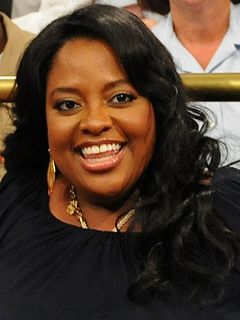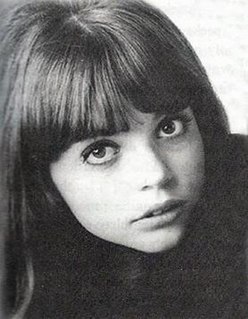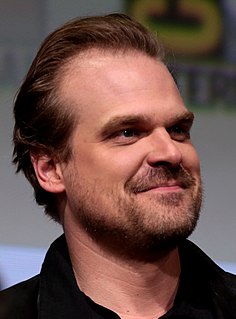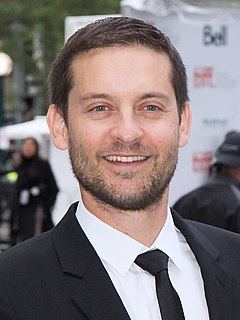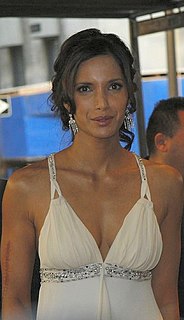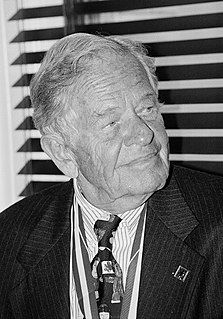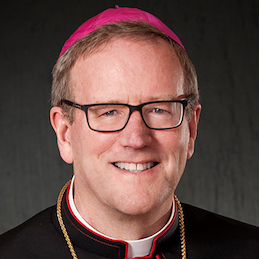Top 185 Aunts Quotes & Sayings - Page 3
Explore popular Aunts quotes.
Last updated on April 20, 2025.
Culture is already there and the church will continue to be even more irrelevant when it quotes letters from two thousand years ago as their best defense. When you have in front of you flesh and blood people who are your brothers and sisters, aunts and uncles, co-workers and neighbors and they love each other and they just want to go through life with someone.
My identity has always been confused. Born in Edinburgh of a Scottish/Russian/Jewish mother and an English/Irish/Catholic father, there is no form of guilt to which I was not subjected in my childhood. Members of my immediate family live all over the world - a diaspora of cousins, aunts, uncles and more in a dizzying mix.
I can pinpoint the exact moment when I first began to think about what profession I should go into. It was 1978. I was seven and had just been handed over by the women of my family to the earnest and self-important gatherings of the men. I was no longer the responsibility of my aunts and older female cousins. I was now a man. This was a tragedy.
Thanksgiving. It proved you had survived another year with its wars, inflation, unemployment, smog, presidents. It was a grand neurotic gathering of clans: loud drunks, grandmothers, sisters, aunts, screaming children, would-be suicides. And don't forget indigestion. I wasn't different from anyone else: There sat the 18-pound bird on my sink, dead, plucked, totally disemboweled. Iris would roast it for me.
My family background really only consists of my mother. She was a widow. My father died quite young; he must have been thirty-one. Then there was my twin brother and my sister. We had two aunts as well, my father's sisters. But the immediate family consisted of my mother, my brother, my sister, and me.
[The woman] paused and seemed to take a deep breath. 'You see,' she declared. 'I am Tom Mallow's aunt.' Catherine's first instinct was to burst out laughing. She wondered why there was something slightly absurd about aunts; perhaps it was because one thought of them as dear, comfortable creatures, somehow lacking in dignity and prestige.
Brantford was the fixed point of my universe, growing up. Both sets of grandparents lived there, with various cousins and uncles and aunts, and no matter how far we'd moved off, we came back there for regular visits. In a way no other houses have ever been, my grandparents' houses were 'home,' and the sale of the last of those houses was hard.
The great thing about getting married young like I did and having a child so young is that he gets to know all the relatives. He knew his great-grandmother, and we sat down together and tied down the stories of our uncles and aunts. They were quite the characters, and we tied them to about 50 recipes. It's like a memoir-cookbook.
For me, my body image struggle started very young. All that I heard from my mother, my aunts, and my mom's friends was, 'I gotta lose five pounds.' At 5 years old, I learned a size 2 is not thin enough. It was, 'Don't eat carbs! Don't eat sugar! Drink Diet Coke! You always diet!' So that was engrained in my brain at a very early age.
Well, when you grow up in a family situation like in England, you're whole - we call it pub culture, and it is, really. You grow up, you literally come home from work, everyone goes to the pub at 6:30, you drink till 10:30, go home and go to bed. That was our entire life - all my aunts and uncles, and my grandfather drank 'til he was 85.
Women without children are also the best of mothers,often, with the patience,interest, and saving grace that the constant relationship with children cannot always sustain. I come to crave our talk and our daughters gain precious aunts. Women who are not mothering their own children have the clarity and focus to see deeply into the character of children webbed by family. A child is fortuante who feels witnessed as a peron,outside relationships with parents by another adult.
I did grow up in Kenosha, Wisconsin, around a lot of my mom's family. I had a lot of cousins and aunts and uncles around me, and my sisters and my brother. Probably the most formative part of it was that we grew up on the edge of a forest. It wasn't a big forest, but it was enough. When you're a kid, it feels gigantic.
Wigs have always been a part of my life and have become a staple accessory in my closet. I can remember being a little girl and hearing all the commotion in my house from my mom, aunts and grandmother when picking out their wigs for the day. It was such a good time for them and part of their everyday beauty routine.
If you've ever had to recall your past in some way and you open a drawer of old photographs that your parents kept, there are always pictures of you smiling and charming, and then a bunch of people you don't know who they are. Could be aunts, uncles, could be the postman for all you know. Who are these people? Your parents are never in the picture, because they are the ones taking them. So you've got these unrelated images that are disconnected from your memories.
I learned a lot from the stories my uncle, aunts, and grandparents told me: that no one is perfect but most people are good; that people can't be judged only by their worst or weakest moments; that harsh judgements make hypocrites of us all; that a lot of life is just showing up and hanging on; that laughter is often the best, and sometimes only response to pain.
It's always seemed to me that black people's grace has been with what they do with language. In Lorrain, Ohio, when I was a child, I went to school with and heard the stories of Mexicans, Italians, and Greeks, and I listened. I remember their language, and a lot of it is marvelous. But when I think of things my mother or father or aunts used to say, it seems the most absolutely striking thing in the world.
Not only my parents but the whole family was involved in the resistance - my grandfather and grandmother, my uncles and aunts, my cousings of both sexes. So ever so often the police came and took them away, indiscriminately. Well, the fact that they arrested both my father and mother, both my grandfather and grandmother, both an uncle and an aunt, made me accustomed to looking on men and women with the same eyes, on an absolute plane of equality.
I talk a lot about the men in my family because my mother died when I was little, and my grandmother died when my aunts were little, so we didn't have those kinds of heads of household. But all the members of our household who were female were sort of living as equal and as wise as the male figures in our family.
We're good at taking care of little kids, and spend a lot of energy teaching them things like how to read. But when kids get as tall as their parents and can look them in the eyes, we tend to drop the ball - at a time they most need a loving consistent community of adults, be it parents, aunts, uncles, or others.
All children need a laptop. Not a computer, but a human laptop. Moms, Dads, Grannies and Grandpas, Aunts, Uncles - someone to hold them, read to them, teach them. Loved ones who will embrace them and pass on the experience, rituals and knowledge of a hundred previous generations. Loved ones who will pass to the next generation their expectations of them, their hopes, and their dreams.
When I was a kid I used to scoot under the table, and whenever company would come around you know or my sisters or parents would tell me, go under the table and I'd do it because it was entertainment for the family or aunts or whatever. And one time at the Paramount when I first did it, you know, Brooklyn Paramount, I did it in the act during an instrumental and it got a big ovation and so I coined it as one of the things I should do in the act. And since I've been doing it.
I felt like I was an outsider. I think what happened to me made me develop this street sense of watching people and working out what made them tick, wondering whether I could trust them or not. I went to a lot of schools along the coast in California, made few friends and stayed with aunts, uncles and grandparents while my folks tried to make ends meet. It was tough. We had no money.
I couldn't imagine what it would be like to be one of so many, to have not just parents and siblings but cousins and aunts and uncles, an entire tribe to claim as your own. Maybe you would feel lost in the crowd. Or sheltered by it. Whatever the case, one things was for sure: like it or not, you'd never be alone.
I have a family, loving aunts, and a good home. No, on the surface I seem to have everything except my one true friend. All I think about when I'm with friends is having a good time. I can't bring myself to talk about anything but ordinary everyday things. We don't seem to be able to get any closer, and that's the problem.
I've learned to rely on the strength I inherited from all those who came before me-the grandmothers, sisters, aunts, and brothers who were tested with unimaginable hardships and still survived. 'I go forth alone, and stand as ten thousand,' Maya Angelou proclaimed in her poem 'Our Grandmothers.' When I move through the world, I bring all my history with me-all the people who paved the way for me are part of who I am.
Our most basic institution of family desperately needs help and support from the extended family and the public institutions that surround us. Brothers and sisters, aunts and uncles, grandparents and cousins can make a powerful difference in the lives of children. Remember that the expression of love and encouragement from an extended family member will often provide the right influence and help a child at a critical time.
But the saints are never the kind of killjoy spinster aunts who go in for faultfinding and lack all sense of humor. (Nor should the Karl Barth who so loved and understood Mozart be regarded as such.)For humor is a mysterious but unmistakable charism inseparable from Catholic faith, and neither the "progressives" nor the "integralists" seem to possess it - the latter even less than the former.
With infinite life comes an infinite list of relatives. Grandparents never die, nor do great grandparents, great-aunts…and so on, back through the generations, all alive and offering advice. Sons never escape from the shadows of their fathers. Nor do daughters of their mothers. No one ever comes into his own…Such is the cost of immortality. No person is whole. No person is free.
And he felt himself oppressed by this creation of factitious purity, so cunningly manufactured by a conspiracy of mothers and aunts and grandmothers and long-dead ancestresses, because it was supposed to be what he wanted, what he had a right to, in order that he might exercise his lordly pleasure in smashing it like an image made of snow.
If the Word truly became flesh, then God had not only a mother, but also a grandmother, cousins, great-aunts, and weird uncles. If the Word truly dwelt among us, then he was part of a family that, like most, was fairly dysfunctional, a mix of the good and bad, the saintly and the sinful, the glorious and the not so glorious. And this is such good news for us.
Anyone who has the temerity to write about Jane Austen is aware of [two] facts: first, that of all great writers she is the most difficult to catch in the act of greatness; second, that there are twenty-five elderly gentlemen living in the neighbourhood of London who resent any slight upon her genius as if it were an insult to the chastity of their aunts.


